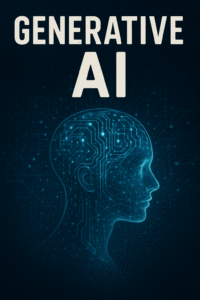Conscious AI, also known as Ethical AI or AI with a focus on ethical considerations, involves developing artificial intelligence systems that are aware of their impact on individuals, society, and the environment. Here are some project ideas that align with the concept of Conscious AI:
- Explainable AI (XAI) Framework:
- Develop a system that not only makes predictions but also provides clear explanations for its decisions, fostering transparency and trust in AI systems.
- AI for Social Good:
- Create an AI application that addresses a specific societal challenge, such as poverty, healthcare accessibility, or environmental sustainability, with a focus on positive impact.
- Bias Detection and Mitigation:
- Build a tool that can detect and mitigate bias in AI algorithms, ensuring fairness and equity in decision-making processes.
- Privacy-Preserving AI:
- Design AI models that can perform complex tasks while preserving user privacy, employing techniques like federated learning or homomorphic encryption.
- AI for Mental Health:
- Develop an AI-powered application that assists in monitoring and improving mental health, ensuring ethical considerations in data handling and user interactions.
- AI and Climate Change:
- Create an AI system that analyzes environmental data to provide insights into climate change trends or suggests sustainable practices for individuals and businesses.
- AI in Education Equity:
- Develop an AI application that addresses educational disparities by providing personalized learning resources and support to students from underprivileged backgrounds.
- Ethical Chatbots:
- Build a chatbot that is programmed to respond ethically to user queries, avoiding misinformation and promoting positive and unbiased communication.
- Algorithmic Accountability Tool:
- Create a tool that enables users to understand how algorithms impact their online experiences and provides options for customization to align with their ethical preferences.
- AI-driven Accessibility Solutions:
- Develop AI-powered solutions that enhance accessibility for people with disabilities, such as image recognition for the visually impaired or natural language interfaces for those with motor impairments.
- Conscious Consumer AI:
- Build an AI application that helps users make ethical and sustainable choices by providing information about the social and environmental impact of products.
- AI in Judicial Systems:
- Create a system that assists judges and legal professionals by providing insights into potential biases in legal decisions and promoting fairness in the judicial process.
- Robotic Ethics:
- Design a robotic system with ethical considerations, ensuring that robots interact with humans in a respectful and socially responsible manner.
- AI-driven Fact-Checking:
- Develop an AI tool that can analyze and verify information to combat misinformation and fake news, promoting a more informed public discourse.
- Conscious AI in Autonomous Vehicles:
- Implement ethical decision-making algorithms in autonomous vehicles, ensuring the safety of passengers and pedestrians while considering moral and ethical dilemmas.
When working on these projects, it’s crucial to involve interdisciplinary perspectives, considering not only the technical aspects but also the ethical, social, and legal implications of AI systems.




